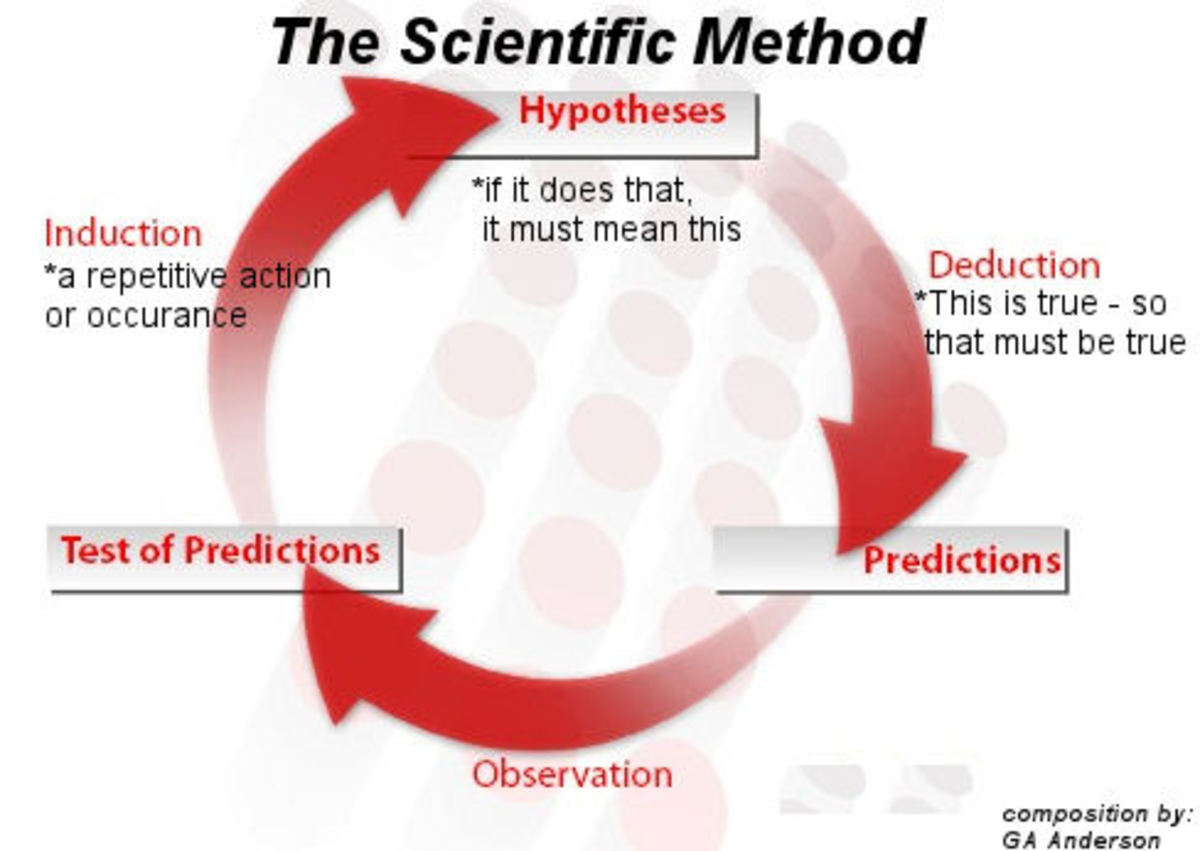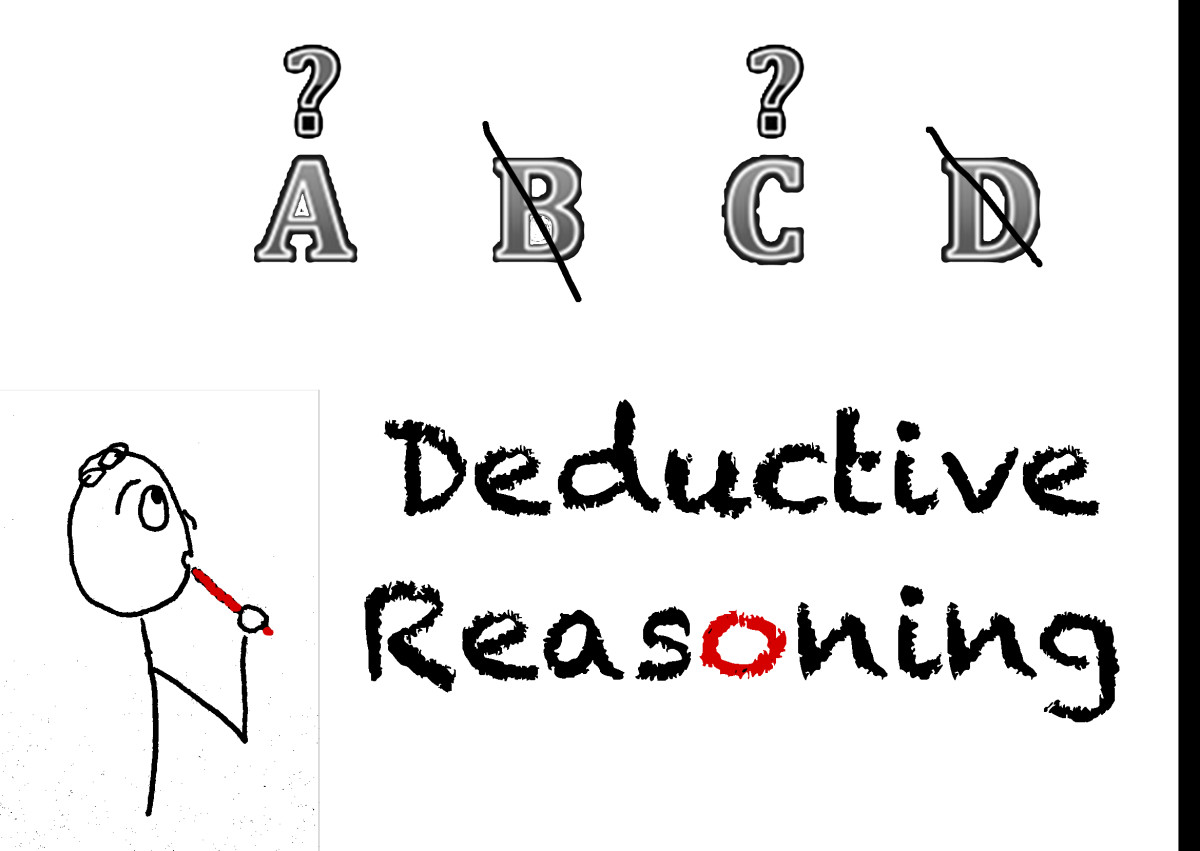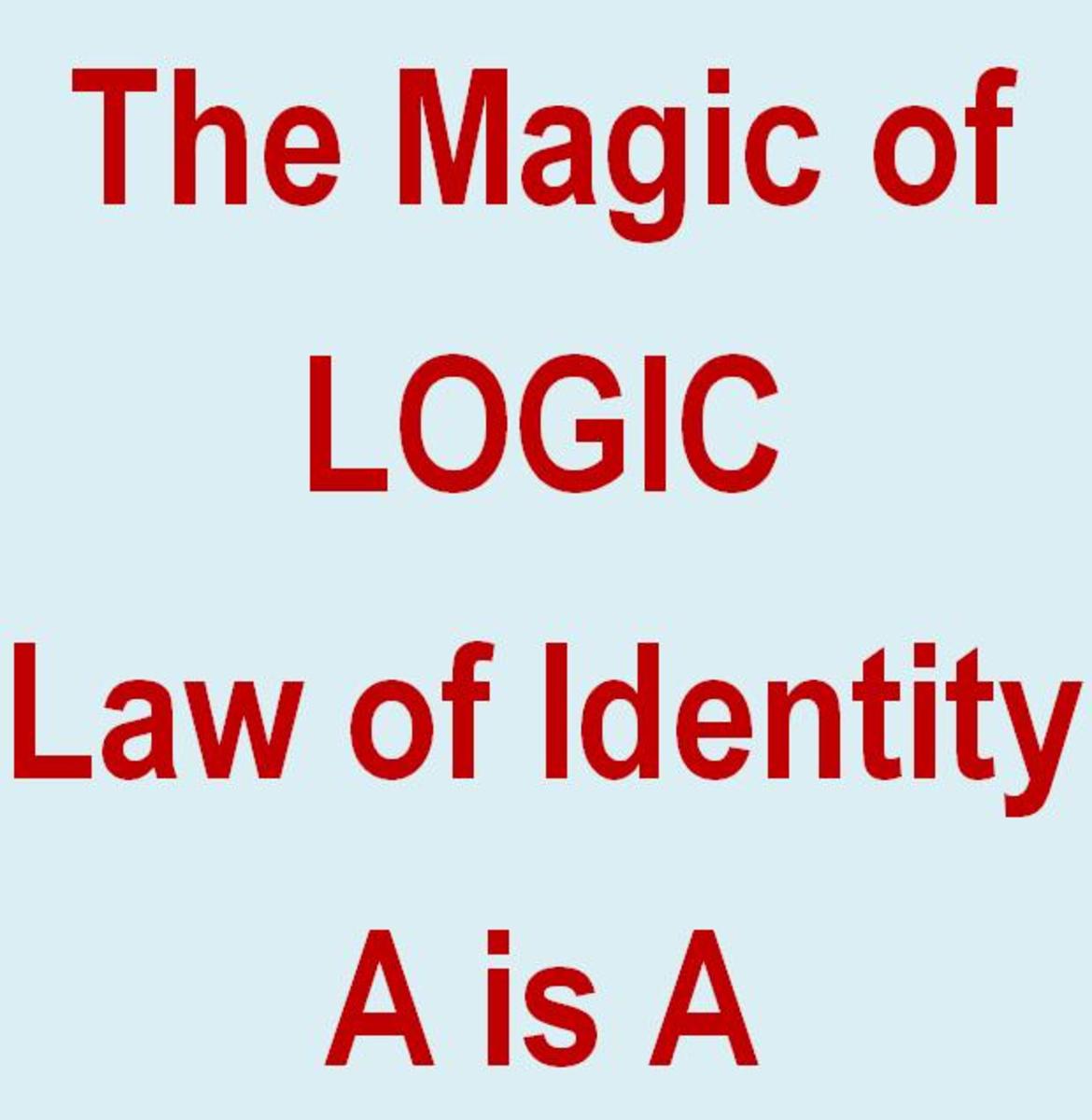Paranormal Bytes: A Look at Hard Science
Hard Science

Hard Science Has Its Drawbacks, Too
Is Hard Science Really Trustworthy?
Frankly, and when you get right down to the bottom of accepted hard science as we know it, "NOT REALLY."
Three primary methods of Scientific Investigation which are methods of manipulating scientific explanations around everything in our world are:
Classic Model, Pragmatic Model and Logic/Empiricism Model.
Classic model involves indictive reasoning, deductive reasoning and abductive reasoning skills and methods, all of which are good for making certain explanations but not others. Here, science and the scientific method are limited mainly by what is not known as a principle portion of whatever we're trying to examine.
The Classical model can help us build theories and all sorts of things but if we have a questionable 'starting point' or a wishy-washy fact to examine, the classical model might not help us explain things further. It might not help us delve into a misunderstood starting example to define it better, either (Pragmatic model MIGHT help with the latter and defining).
Comical (But Holds Some Truth) - "The Limits Of Science"
(Joke) Supposedly Scientific Methods of Explanation
Basically, in my experience, we have three scientific models to follow in order to come up with explanations for things, concepts and stuff in our world.
I like to name the scientific methods of explanation this way:
Model A) Classical, used by old dead Greco-Roman dudes and still in use today - good method
Model B) Mindscrew method - leaves you so involved with explanation that you forgot what you were trying to explain! Bad method
Model C) Whoops method - starts off with a 'supposed' thing that is universally true and that everyone knows to be a truth - not good if something in the way of facts has changed in the last, say, five years...bad method. * Note - if your original supposition is wrong and you go all the way through connecting facts and such...you will come to amazing, logical conclusions with this method...but you will be WRONG almost every time you make a final statement.
Again - bad method
Okay - my making fun of science isn't really very funny, I know - but neither are two of the three most acclaimed scientific methods of explanation!
Two will boggle your mind as you progress through the material on this hub - one will be a method of explanation you actually use and understand. You've used it before, you'll use it again - Classical Method - and you will actually understand what you are doing with it.
The other methods appear to basically be for expert scientists, so most of the world population will be out to lunch if they try to use Pragmatic and Logical Empiricism methods below.
Now, I am not saying that two of three methods are not useful - just saying that most of the world population will not be using them - and most people will not ever really require the use of more than Classical Method. Scientists use methods other than the Classical Method because they are examining the world in a specifically scientific, intricate way that requires the use of more than just one method of explanation.
(Serious) Consciousness and The Limits of Science. By Professor Russell Stannard
The Classical Model of Scientific Method
Classical or Classic model involves indictive reasoning, deductive reasoning and abductive reasoning skills and methods.
The abductive part is like the 'hunch' you feel when you think you know something...this 'hunch' is not just some out of the blue idea - it has come to you by way of bits of logic your brain puts together but that you might not understand clearly as soon as you have the feeling that you 'know something.' It truly is logic at work but the confusing part of abductive/hunch reasoning is that your brain is trying to put together a bunch of seemingly unrelated things - in a logical way. When unrelated things seem to connect and while you're at the stage where you cannot yet point to how these things are connecting, your brain "knows something" and has made a conclusion already - about the things it found relevant and related - out of things you haven't yet made a conscious, linear connection about - this is the 'hunch' feeling.
Inductive and Deductive skills should accompany the abductive part, and - if the abductive reasoning or 'hunch' was anything solid, inductive and deductive skills should make the pathway between the unrelated things you felt a 'hunch' about.
Unfortunately, the logic your brain just used in the 'hunch' process may not, in fact be clear. Your feelings may have played a part in the hunch - that is, your emotions or some other psychological feature of the human mind. Your brain may have treated an emotional feeling as a fact, then included it into its processing of logical A,B,C's.
ALSO - just BECAUSE inductive and deductive skills don't turn out a plausible scientific explanation, this doesn't mean your brain didn't use a sort of subliminal logic in the right way to get to an 'end result' that is, in fact TRUTHFUL or correct.
Science rarely treats emotional things and psychological factors as elements of 'fact,' although - most certainly - our complex and largely yet unexplained, fantastic brains WILL include aspects of our thinking and emotions into our reasoning process and OFTEN come out with a "right" answer - despite the right answer not being explained by science.
This is largely because emotions and psychological things are often not 'countable' and 'measurable' to any accurate degree by the hard sciences. Many emotional/psychological aspects are 'counted for' and mentioned in science but just as a blanket piece of data that cannot be further quantified or explained. Our brains, however, can make some connections when emotions and other data are put into the 'equation' with known facts, and our brains know how to process many things correctly that we still cannot explain by hard science methods of testing and explanation.
FOR EXAMPLE
For example - sometimes it's imperceptible body language data from someone else that the eyes see and the brain will process - to give us a "hunch" that something is NOT RIGHT in our environment. Not explainable by science - but definitely constructable and do-able by adbuctive reasoning and consequent processes of the brain. Some people might call this whole scenario a 'psychic feeling' of imminent danger...but the brain may correctly call into account things we don't notice, do some logical thinking and give us a clear message to "Run away from that dangerous person!" And sometimes, if we did run like the brain suggested, we get home later and think we were being illogical and silly...until we see the photo of some apprehended person who is the same person we just ran away from earlier in the day.
Most notably, in the fields of Crime Prevention and Police Work, abduction details ("The Hunches") are acted upon seriously whether or not they adhere to scientific explanations which are supposed to follow with inductive and deductive reasoning. It seems that people in police work fields attempt to use all and act upon all forms of logic and reasoning methods at the same time and as quickly as possible...smartie-pants cops! They might be on to something!
And here we are still looking into the matter of the "hunch" - and no 'hard science' has really occurred yet, you see?
Take note - in a moment, inductive and deductive topics will take considerably less explanation and space to explain than the above - they have 'finite' and measurable qualities, whereas 'adbuction' data is already within science but without ability to truly explain other things scientifically.
(It is here that I must say I am flabbergasted at the manner in which people TRUST hard sciences over all other sorts of explanations, for in the most Classic Model, there are problems in the very first type of logical reasoning - abductive reasoning. The Classical Model BEGINS with a "HUNCH.")
"Inductive" and "Deductive" in Science
Inductive: moves from a specific set of facts (believed to be properly 'known' and with significantly known qualities) and moves toward a general conclusion. It is also considered a type of "theory-building." Inductive reasoning tends to start with the smallest 'known' data and build to show how consequent data is related - and finally - the inductive approach makes a conclusion about all the related data. Scientists will warn that with the inductive method, however, completion of relating data and theory building may NOT result in overall 'truth.' That is, the conclusions reached through inductive reasoning may not always yield truth or mean that the conclusion is absolutely correct. We're supposed to reach the end of our inductive reasoning process, basically, with the statement of "this is most likely to be true, given the data we've examined."
Deductive: we've learned to use the concepts of "valid argument" and "invalid argument" when dealing with deductive methods of explanation and logic - rather than 'true' or 'false.'
Deductive logic is where reasoning constructs/evaluates deductive arguments (some people say 'statements'), and where the 'truth'/validity of the conclusion is supposed to follow from or be a logical consequence of the truth/validity of the premises (original statement or argument).
Here, as well, going through the stages and work of deductive logic can yield questionable results. Most often, if this sort of logic makes an invalid/questionable or wrong conclusion, the data from the start was 'bad' or invalid. With deductive logic, you MUST BEGIN with data you are most positive is true/valid. If your starting point is questionable, you can turn out a fantastic explanation and result but be completely WRONG in your explanation.
The abductive, inductive, and deductive approaches are ancient and are most commonly said to derive from Aristotle.
Basically, as you might be able to guess from the information so far, Aristotle's methods of logic are HIGHLY questionable unless absolute known data is the material being examined.
One method (deductive) can be processed to completion on bad data, yield an awesome result that looks totally convincing and can also be EXPLAINED in full...except the conclusion can be DEAD WRONG...
An example of this would be the 'flat earth' explanation that almost everyone is familiar with. Several centuries ago, people believed the earth was flat. All existing, known data pointed to the explanation that the earth was, indeed, flat. The first part of deductive reasoning would lead anyone, centuries ago, to very logically conclude that the earth was flat! As far as the eye could see, the horizon was flat. Taking into consideration, angles of trees, mountains, etc, and searching to the bottom of where these begin, everyone could conclude that all mountain bases end up leading to a FLAT ground, tree roots go into an earth that is basically level and flat. Here, scientific explanations solved the problem of why the landscape has tilts and levels, etc.
All of this was excellent, if not simplified, deductive reasoning...but mankind, centuries ago, had absolutely no way to KNOW - that the starting point for deductive logic about the earth's surface SHOULD NOT BEGIN with examining the bases of mountains, the surfaces of lakes and other bodies of water, etc. The nature of the earth's shape and form has nothing to do with the horizon we see. The basic starting point ACTUALLY involves more than just physical space and objects - it involves GRAVITY, light rays, distance measurements, etc.
Basically, we all can ONLY still see a FLAT world - we know that those with the proper tools and knowledge are able to deduce that the earth is not flat. It's round - sort of oval-shaped, actually - and that the reason we don't fall off our life-sustaining sphere is that gravity holds us down.
For the centuries when the 'flat earth' explanation existed, the conclusion of early scientists was, indeed, PROVEABLE and CORRECT...it was, however, - wrong overall
Limits of Science and Scientific Method, attention on "Ethics"
Pragmatic Model of Scientific Explanation
Pragmatic Model: involves a bunch of complicated stuff like accounts, very particular descriptors and descriptions of words and concepts, and theories about the concept of truth. Pragmatic maxims come into play, explained here: Pragmatic Maxim on Wikipedia the link is given because because "pragmatic maxim" is rather involved and complicated while trying to get to the most simplified, correct explanation.
More people learn to understand what Pragmatism and Pragmatic Maxim means and how it works rather than employing it, themselves, all the time as a scientific method.
In admittedly very poor summary, the pragmatic model is most concerned with getting down to the bottom of the words and word meanings, clarifying concepts and words, and then applying "science." Much of pragmatic science is dealing with non-countable concepts, doctrines, theories, etc. Pragmatic science and methods are confusing even to many scientists who deal primarily with other methods of scientific investigation because using pragmatism can be incredibily DISTRACTING. In essence, dissecting meanings of things, the words used to describe things, often brings people to advanced, complex problems in word usage and distracts away from original questions being asked. Only people very experienced in linear methodologies and who are good with multiple lines of thinking usually appreciate using this scientific method.
I've had to work with pragmatic examples in my university classes, in a required science class, and I'm a 'big picture' and 'feeling' person, not a linear-method person. Doing pragmatic problems for homework was a nightmare and my biggest problem was 'distraction into the smaller, basic explanations.'
Trust me, even if I know how the pragmatic model works, my explanation of it here is NOT SUFFICIENT for those actually wanting to LEARN to PRACTICE this method of scientific application! Use the link I provided - I've done the best I can on this sub-topic.
Limits and Presuppositions in Science
Logical Empiricism Model of Scientific Explanation
Logical Empiricism: is another complicated method or process of gaining and expressing explanations that I'm not able to get into with any great depth here. It uses primarily something called a "Deductive-nomological" model to examine data and reach conclusions and statement-explanations. This method basically presents scientific explanations as deductive arguments/statements which include at least one natural law statement along its premises.
Natural Law is a theory that posits (it 'supposes' or assumes that) a particular law or rule exists whose characteristics or content is set by NATURE and because its content is set by nature, this law is universal and has validity everywhere.
Okay, most of this section or 'module' of the hub is like a foreign language to those who are not actually schooled in the scientific fields, right?
Rather than continuing on with more explanations about scientific explanations that are increasingly complex and that almost nobody uses with any great skill - except schooled scientists - let this section of the hub just stand to show how COMPLEX and UN-simplified science and scientific explanations get.
The biggest thing I would like to highlight here:
General use of "SCIENCE" using certain scientific methods is not up for UNIVERSAL application. That is - basically, the average person does not get into Pragmatic or Logical Empiricism methods for explaning the world around them.
For me, things that are non-universal mean there are limits to the usefulness of the non-universal thing.
If science is supposed to hold the authority so talked about, why is it out of reach of the average person to understand and to use?








